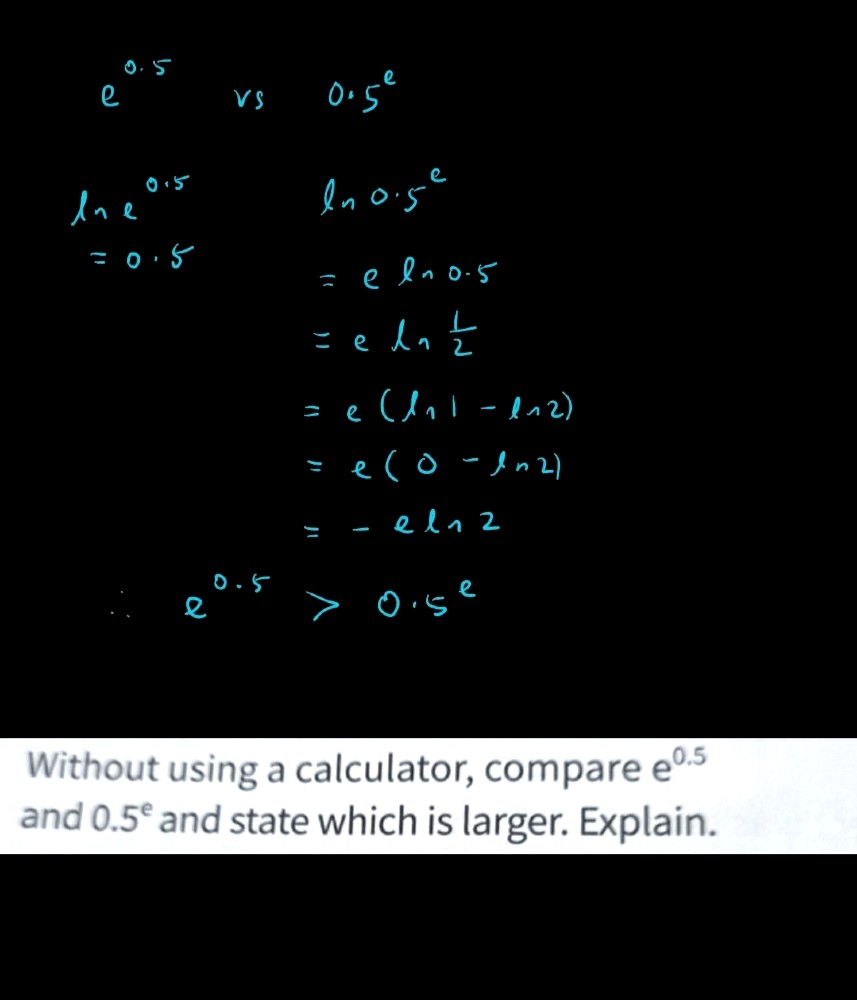Ask Singapore Homework?
Upload a photo of a Singapore homework and someone will email you the solution for free.

Question
secondary 3 | A Maths
One Answer Below
Anyone can contribute an answer, even non-tutors.

Please help
Recall that p^0 = 1 for any positive value of p.
Now, there are useful results to know from here.
Suppose an expression is written as p^n.
If p > 1, then any positive power n will result in p^n being bigger than p itself. This means that e^0.5 > e^0, such that e^5 is bigger than 1.
[If the base p is greater than 1, then the positive powers serve to amplify the value of the base, think for example 2^5 = 2 x 2 x 2 x 2 x 2 and the value gets bigger and bigger]
if 0 < p < 1, then any positive power n will result in p^n being smaller than p itself. This means that 0.5^e < 0.5^0, such that 0.5^e < 1.
[Similarly, if the base p is between 0 and 1, then the positive powers serve to reduce the value of the base towards zero, think for example 0.5^5 = 0.5 x 0.5 x 0.5 x 0.5 x 0.5 and the value gets smaller and smaller]
So, it's pretty clear by now that 0.5^e < 1 < e^0.5, so e^0.5 is the larger number.
See 1 Answer





